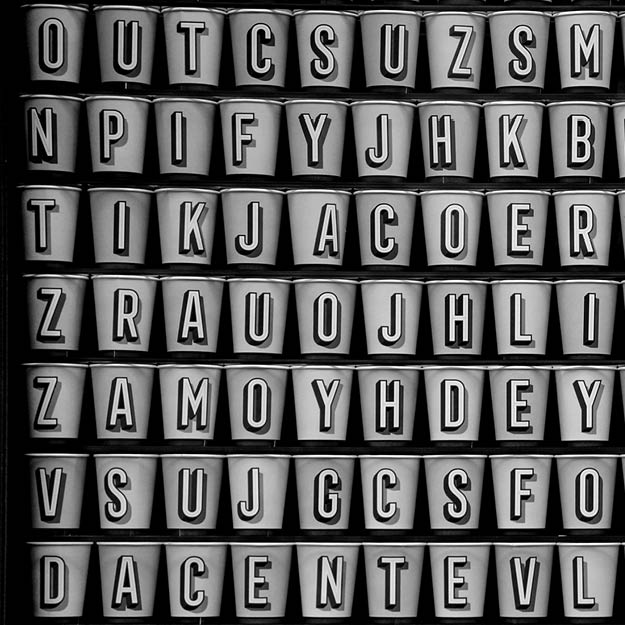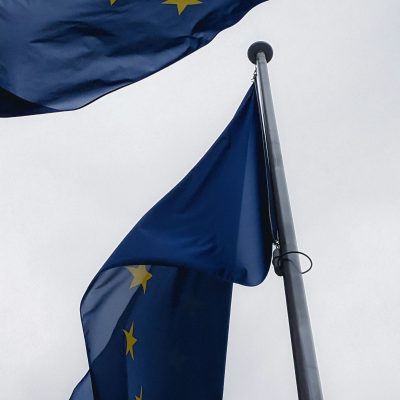Quelle(s) langue(s) parleront les élites européennes de demain?

Le 16 juin dernier, l’organe chargé du recrutement dans les institutions de l’Union européenne (l’Office européen de sélection du personnel, généralement désigné par son acronyme anglais « EPSO ») a publié, pour la toute première fois, un avis de concours pour le recrutement de fonctionnaires européens restreignant à la seule langue anglaise les épreuves déterminantes de la procédure de sélection. La publication, il y a quelques jours, d’un nouvel avis de concours tout aussi restrictif laisse fort peu de doutes quant à l’intention d’EPSO d’appliquer un régime linguistique privilégiant l’anglais à l’ensemble des concours de la fonction publique européenne à moyen terme.
Le message qu’envoie EPSO est clair : désormais, les Européens qui se destinent à une carrière dans les institutions de l’Union n’ont pas grand intérêt à s’investir dans l’apprentissage d’une autre langue européenne que l’anglais. Plus encore : au long cours, les fonctionnaires européens ont vocation à travailler dans une langue unique – la langue anglaise.
Le choix d’EPSO de parier exclusivement sur l’anglais pour le recrutement des fonctionnaires européens entre en conflit avec l’obligation que les traités font à l’Union de respecter la richesse de sa diversité culturelle et linguistique, de veiller à la sauvegarde et au développement du patrimoine culturel européen et de développer l’apprentissage et la diffusion des langues de ses Etats membres. Au demeurant, une telle restriction à la seule langue anglaise contraste avec la devise de l’Union (« Unie dans la diversité »).
Plus largement, le choix d’EPSO est une manifestation supplémentaire du recul du multilinguisme dans les institutions européennes. En effet, l’écrasante majorité des documents de travail y sont désormais rédigés en anglais et sont pour partie seulement traduits dans les autres langues officielles. Il semble de plus en plus difficile de soutenir que l’anglais, le français et l’allemand sont encore les trois langues de travail de la Commission européenne, tant la première de ces langues est aujourd’hui privilégiée par cette institution. En outre, la défense du multilinguisme a disparu du portefeuille du commissaire européen à la culture, à l’éducation et à la jeunesse. Par ailleurs, l’une des premières décisions qu’a prises le nouveau Parquet européen quelques jours après avoir formellement entamé ses travaux a été de choisir l’anglais pour langue de travail.
Ainsi, le choix d’EPSO est tout à fait symptomatique de ce que la tension entre la tentation d’un monolinguisme anglophone certes économe, d’une part, et l’effort du multilinguisme, d’autre part, s’est, ces dernières années, presque systématiquement résolue en faveur de la première et au détriment du second.
Pourtant, au lendemain du Brexit et alors qu’est réaffirmée la perspective de l’adhésion à l’Union de nouveaux Etats, la défense du multilinguisme dans les institutions européennes apparaît aujourd’hui plus que jamais essentielle pour protéger le sentiment d’appartenance et les savoir-faire européens.
Le multilinguisme n’est pas une fantaisie de polyglottes ou uniquement une question de principe.
Il en va d’abord de l’attractivité de nos universités et de nos filières d’enseignement des langues. Quel intérêt auraient de jeunes Européens se destinant à une carrière dans la fonction publique européenne à s’inscrire à l’Université libre de Berlin ou à l’Université de Bologne, plutôt qu’à Boston ou à Cambridge (où, soit dit en passant, ils investiront plusieurs dizaines de milliers d’euros), si la langue déterminante au sein des institutions européennes est exclusivement l’anglais ? Nos langues sont notre patrimoine commun et les Européens qui choisissent de l’entretenir ne devraient pas pâtir d’opportunités professionnelles moindres dans les affaires publiques. En tout état de cause, le multilinguisme n’a jamais signifié un renoncement à l’anglais, dont une bonne connaissance est aujourd’hui évidemment essentielle. Si miser sur la maîtrise d’autres langues européennes n’est certainement pas exclusif d’une connaissance satisfaisante de la langue anglaise, l’inverse est nettement moins vrai.
Ensuite, le multilinguisme traduit un état d’esprit, une capacité d’apprentissage et d’ouverture. L’apprentissage de plusieurs langues étrangères développe non seulement les capacités cognitives et mémorielles mais aussi la perception des nuances et la capacité à appréhender d’autres façons de penser. Face à l’essor impressionnant de diplomaties non occidentales, de telles qualités seront vraisemblablement déterminantes, demain, dans la conduite de la politique étrangère de l’Union.
Enfin, le multilinguisme préserve le lien entre les élites et les peuples européens, à l’heure où nombre de mouvements très critiques de l’engagement européen prospèrent précisément sur le grief que l’administration de l’Union n’a guère d’égard pour ses administrés. Ce n’est d’ailleurs pas un hasard si l’institution européenne où le multilinguisme est le moins en recul – le Parlement européen – est justement celle qui représente directement les citoyens de l’Union. Le multilinguisme tend en effet à faire vivre un certain sentiment d’appartenance à l’Union. En outre, il limite l’inégalité linguistique, tant entre les Etats membres – au sein desquels la capacité à privilégier l’enseignement de l’anglais varie largement – qu’entre les citoyens de l’Union – dont seule une fraction a l’opportunité et les moyens de maîtriser la langue anglaise.
Ces enjeux apparaissent aujourd’hui cruciaux, à au moins trois titres.
Premièrement, parce que, le Royaume-Uni ne faisant plus partie de l’Union, l’anglais n’est désormais plus la première langue officielle d’aucun Etat membre (l’anglais est la deuxième langue officielle de l’Irlande et de Malte).
Deuxièmement, en raison de la circonstance que le champ des compétences exercées par l’Union s’élargit de plus en plus tandis que son budget et le nombre de fonctionnaires qui travaillent en son sein s’accroissent, si bien que les carrières au sein des institutions européennes vont attirer de plus en plus d’Européens.
Troisièmement, car la perspective de l’adhésion à l’Union de nouveaux Etats – quel que soit son horizon temporel – est réaffirmée. Or, une fois devenus membres de l’Union, une partie de l’élite administrative et académique de ces pays cherchera à rejoindre la fonction publique européenne. Ainsi, le régime linguistique que les institutions européennes se donnent aujourd’hui est susceptible d’influencer en profondeur, demain, les filières universitaires et linguistiques des Etats candidats.
Les pistes concrètes pour renforcer le multilinguisme dans les institutions européennes semblent relativement bien identifiées. Il s’agit tout d’abord du renforcement de l’interprétariat et de la traduction dans le travail des institutions. Le succès de la plateforme multilingue utilisée lors des consultations citoyennes dans le cadre de la Conférence sur l’avenir de l’Europe montre que les progrès technologiques ouvrent des perspectives à cet égard. Il s’agit aussi de retenir un régime linguistique véritablement multilingue pour le recrutement des fonctionnaires européens, à rebours des choix stratégiques opérés par EPSO ces dernières années. Il s’agit en outre du renforcement de l’enseignement des langues et en particulier de la dimension multilingue dans le programme Erasmus+, qui peut parfois se transformer en expérience exclusivement anglophone.
Surtout, d’un point de vue français, il s’agit moins de défendre la place particulière de notre langue au sein des institutions européennes que de défendre les autres langues de l’Union. Il est vrai que le français continue de bénéficier en Europe d’un certain statut. La langue française est en effet celle du délibéré de la Cour de justice de l’Union et l’une des deux langues utilisées lors des sessions de travail dans le domaine de la politique étrangère et de sécurité commune. En outre, le français est l’une des deux langues officielles du Conseil de l’Europe et de l’OTAN.
Pour autant, tout en continuant à nous battre pour la préservation de ce statut, nous devons aussi comprendre que la langue française est la dernière survivante du multilinguisme au sein des institutions européennes. Si elle est aujourd’hui la dernière des autres langues officielles de l’Union que l’anglais dans laquelle les négociateurs osent encore prendre spontanément la parole en l’absence d’interprétariat, il se pourrait que la fin du multilinguisme sonne un recul sans retour du français. C’est donc en faveur des autres langues de l’Union et d’un multilinguisme véritablement pluriel que nous devons désormais nous mobiliser.
En somme, le multilinguisme est un pari et un état d’esprit en faveur duquel nous devons tenter de fédérer les Etats membres qui partagent l’objectif de préserver la diversité linguistique et se reconnaissent dans l’assertion de l’écrivain Milan Kundera selon laquelle l’Europe se caractérise par « un maximum de diversité dans un minimum d’espace ».




